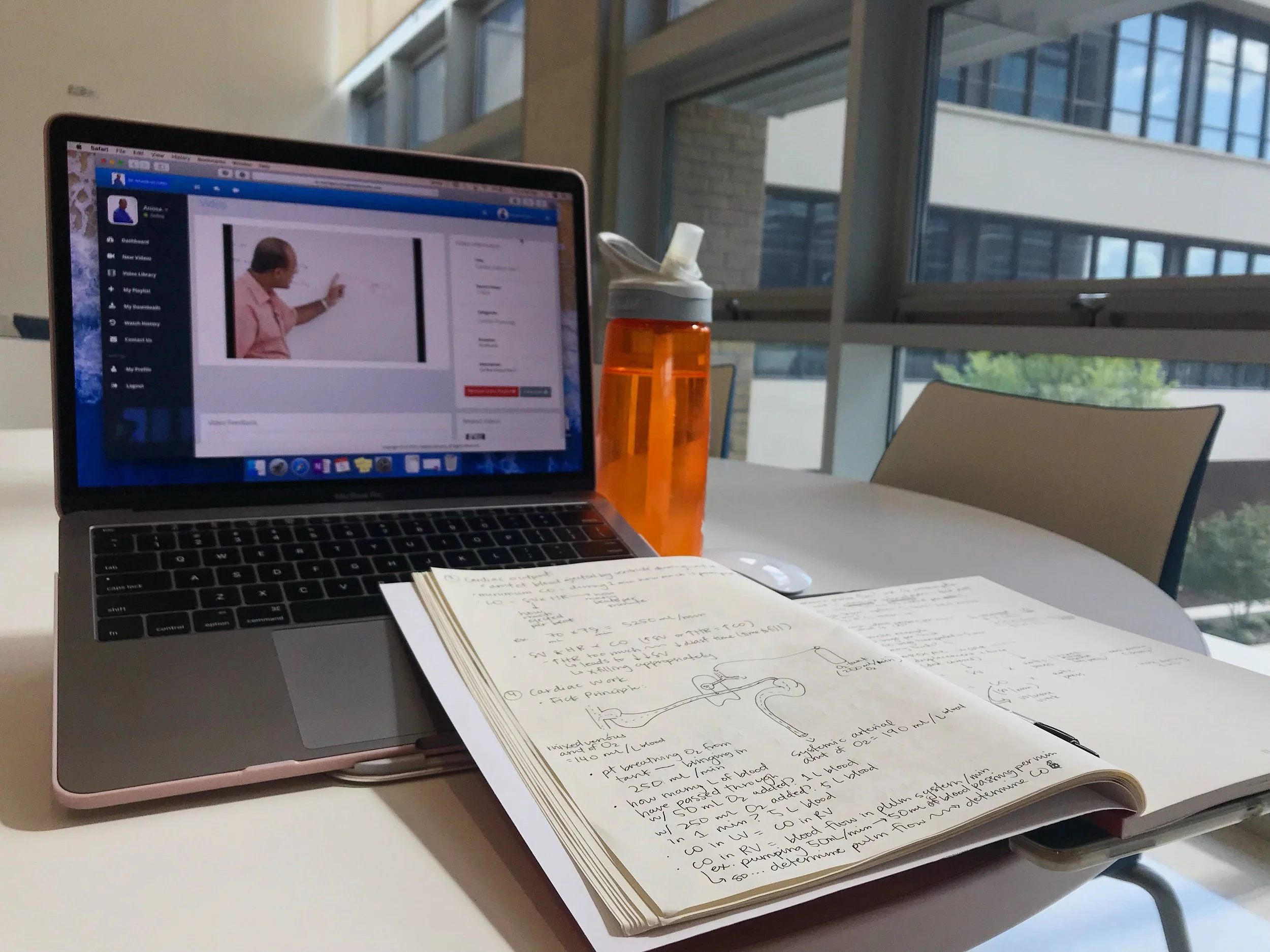How to Develop Your Study Routine

I get it…school is hard! Especially medical or any other professional school. How the heck am I going to study 200 pages worth of material in one week, plus keep up in 4 other classes each with 200 pages worth of material as well? How am I going to prepare myself for these 5 consecutive tests coming up?
I promise you’re not alone. But the first step to approaching all this material is learning how you learn. Sounds redundant, but stay with me.
Here are my 4 tips on how to develop your study routine…
1. Take some time to learn yourself.
How do you do that? Ask questions of course! Here’s what you want to ask yourself:
What do I like? What makes me want to study? What helps me get through 6 hours of work, and feel productive? Do I prefer to work with less stress or more pressure? What was the hardest topic I’ve ever learned, and how did I do it? What makes me happy?
Are you kidding? Happy and studying in the same sentence? Ha!
No, in fact, I’m not kidding. It’s definitely possible to be happy with studying. I’ll use myself for an example.
o I love to write. Something about the texture of paper and seeing my handwriting is aesthetically pleasing.
o I also like having a simple system, kind of like a set of rules. I tend to panic and stress when I feel overwhelmed, but I found that having structure makes me feel loads better!
o I love teaching and mixing platforms. It involves me with the material in several different ways, causing a deeper connection and understanding.
Those are just a few things about myself, but I know what works for me now and I can use it! When you know yourself and what helps you get through the hardest parts of your work, you feel accomplished, you feel productive, and therefore you feel…you guessed it - happy!
2. Find your best method for learning new, difficult concepts at a high volume.
After you answer those questions and find out what you like or don’t like, it’s time to find the best method that fits your preferences.
o Since I like to write, I usually have a textbook in which I write in, highlight sparingly, underline, write margin notes, and add sticky notes.
o Since I like a simple system, I have a “go-to timeline” for what to do and when. I have a planner with my days & study times drawn out. I have a “go-to structure” written in my planner for what works in each class. I also like to have a one-stop resource outside of the textbook (for simplicity). I make myself a comprehensive study guide so that I don’t have to flip through too many notes.
o Since I love teaching, I either find one classmate who needs helps understanding a concept, or I talk out loud and teach myself!
o Mixing writing, reading, speaking, drawing, and application shows me that I know one thing 5 different ways. Harder to forget something you know that well!
(More on how I study specifically, what I use, what I’m trying, and planners in later posts…)
3. Keep trying new methods and materials until you get it right, and let go of what doesn’t work.
I have tried soooooooo many different methods to see what works. And of course, I’ll share it all with you! The one thing about medical school (or I guess life period) is that you have to be adaptable. You have to be able to change with complexity, with failure, or with knowledge. Everything around you will change (even what you know about medicine or whatever you're studying), so you must be willing to change as well.
If what you tried did not get you the result (which is learning the material), do not do it again! I repeat, DO NOT DO IT AGAIN!
“The definition of insanity is doing the same thing over and over again, and expecting different results.”
If it didn’t work, ok! Time to try something new. I see changing up my approach as a fresh start, and you should too. Who doesn’t like a second chance?
4. Listen to advice that others give you, but ALWAYS do what works for you.
I have wasted so much time trying to do things the way other people do them.
For example, in Gross Anatomy many students had suggestions for how to study. Many people used a book called Rapid Review Anatomy as their goldmine! They suggested using this book in combination with practice questions. This method worked for many, and it may also work for you! However…it did not work for me.
I couldn’t get with RR Anatomy at all! The organization of RR was more of bullet points, facts, tables, and a few relative pictures. It was different for me and seemed more random, so I could not connect with it. What worked for me you ask? The gross anatomy textbook. I realized that I like to read from a textbook because it tells you in the form of a story (or in a certain order) and it tells why a concept is the way it is. My preference is not time-friendly, but if I had been more confident in what worked for me, I could've budgeted my time accordingly. I learned this late and could’ve been doing it the entire semester. I’ve learned my lesson on trusting myself and what works for me!
I hope this helps you figure out how to approach your study routine for school. Let me know if you have tips to offer too! I’m always learning more and trying to find more ways to grow. As I learn, you will learn too!




